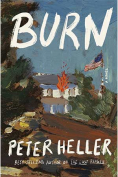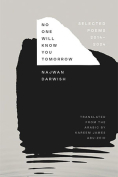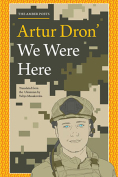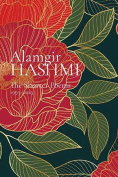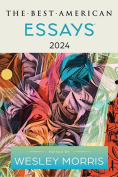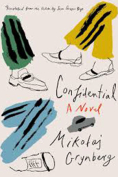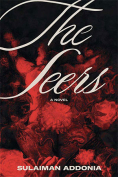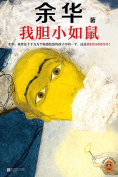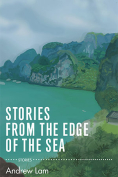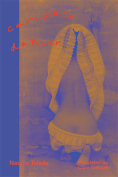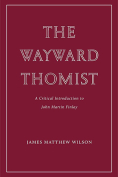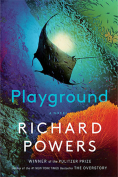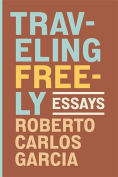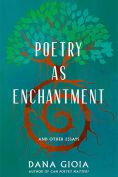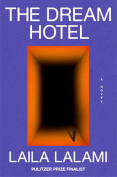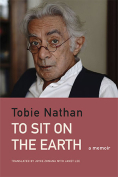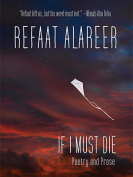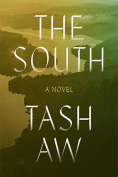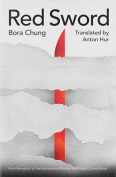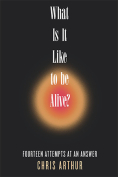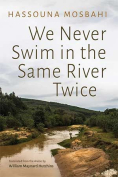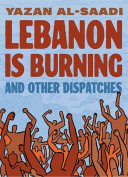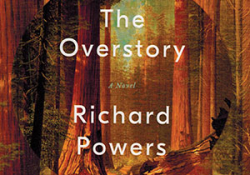Playground: A Novel by Richard Powers
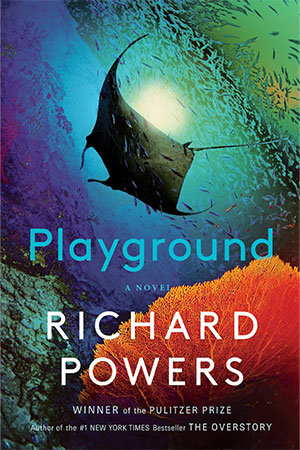
New York. W. W. Norton. 2024. 381 pages.
Quite naturally, one wants to connect Powers’s title to the act of making a novel, with the emphasis on playfulness. But this is no fun house, to use John Barth’s metaphor for what was called metafiction. Granted, there is one tweak in the framework, but it reveals itself so late as to be overlooked. Because its creator is itself created, one does not feel tricked exactly; nor does it lessen the impact of the stories told.
The novel’s title could be “The Ground of Play,” if we understand that earth’s ground is primarily ocean. The “play” occurs beneath the surface that we see. As was the case for trees in The Overstory (2018), the ocean contains “an undiscovered country.” Just as different species of trees and varieties of humans communicate and form relationships, so do the flora and fauna of the sea—even reaching out to humans who enter their world.
If there is a metaphor for Powers’s structure, it would have to be the more formal play of music. A short overture of two- to five-page pieces expands on the introduced characters, developing the episodes of their lives. The first-person sections of Todd Keane remain shorter than the ever-longer omniscient narratives because he is struggling to remember parts of his childhood before the full onset of dementia with Lewy body disease.
His acts of remembering set up shifts between past and present in Todd’s and the more objective storylines. We are introduced first to Todd and Rafi, the first from wealth and privilege, the second a prodigy from West Side Chicago. They bond over games of chess and later the more complex Go. Todd plays with computer code, participating in a university project to build a system with encyclopedic knowledge, a predecessor to artificial intelligence. Rafi explores the endless stacks in the university library, eventually earning a doctorate in education. Ina, with her Pacific-island background, joins the two. Her play takes the form of painting and questioning her two landlocked friends.
Another story features a girl, Evelyne Beaulieu, who becomes an experienced diver, witnessing the play of creatures in the world under the sea. Her descriptions of this world, the coral, a cuttlefish, and friendly manta rays are quite beautiful, displaying, too, the extent to which the author dives into the science of his subject.
In the present, apart from Todd’s declining powers, we have his masterpiece, an online world called Playground, which sorts and aggregates users’ inputs to create groups of potential consumer profiles to sell to businesses. Also emerging in the present is Makatea Island, where Rafi, Ina, and Evelyne have settled. Ruined by past phosphate mining, the islanders face a vote on whether to allow an American company to build a factory producing floating cities, promising jobs and a renovated community. An AI program, Profunda, is sent to answer their questions.
There is potential darkness here: the threats to sea life through pollution and exploitation, the dangers of AI, the possible ruination of a peaceful environment. But Playground concludes more resolutely than some of Powers’s novels, in spite of the framework shift that produces a choice of outcomes. Perhaps it is a twilight effect: stories told with such vitality that one can hope nature will re-create itself, should humans fail to do so.
W. M. Hagen
Oklahoma Baptist University
